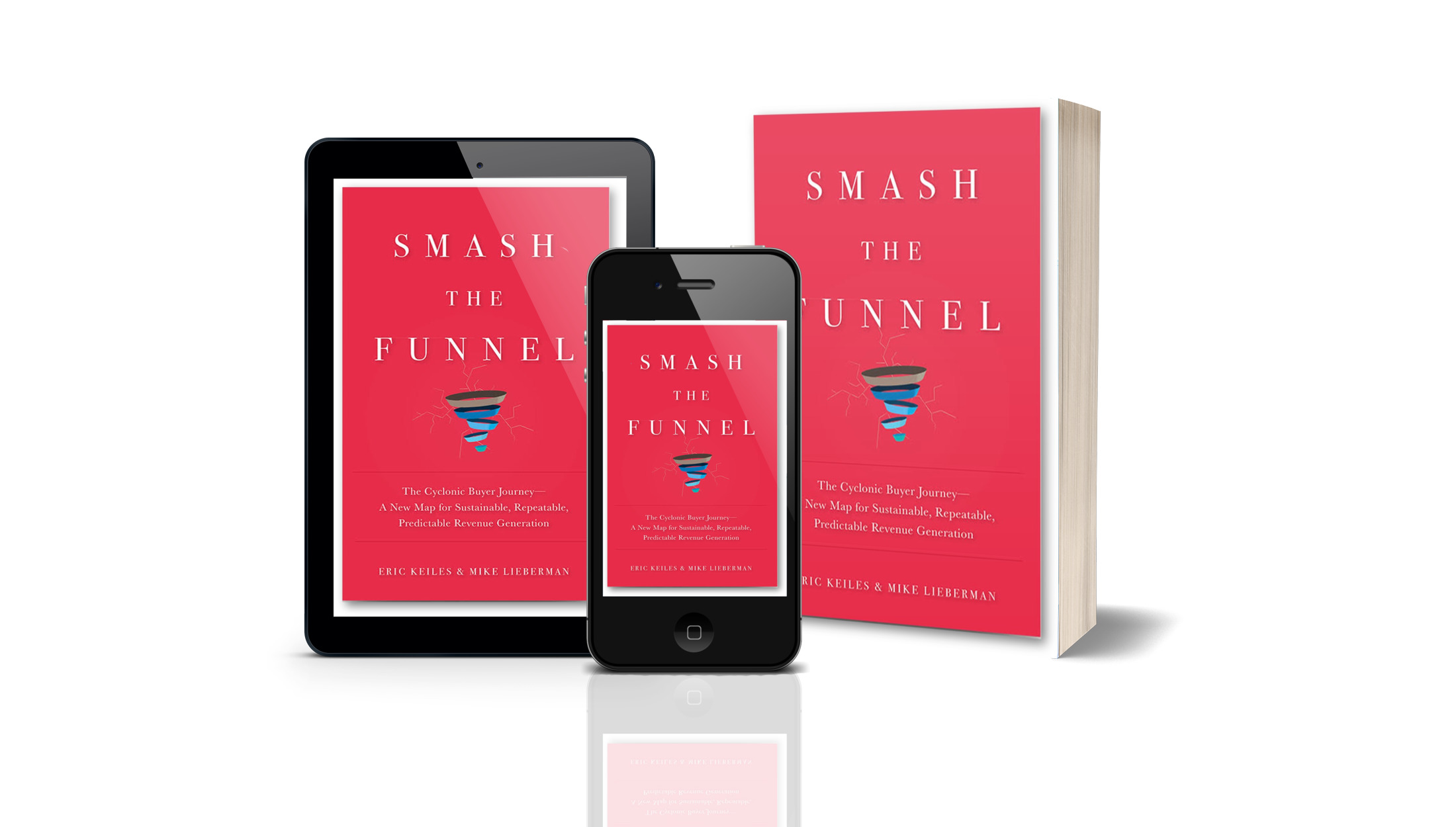 Having run an agency for over 16 years, it’s clear that today the agency business is harder than ever. One of the biggest challenges is differentiating your agency from other agencies.
Having run an agency for over 16 years, it’s clear that today the agency business is harder than ever. One of the biggest challenges is differentiating your agency from other agencies.
One of the other challenges, especially for smaller agencies, is creating enough content and enough thought leading content to get your prospect’s attention, drive search engine optimization and conversion on your website.
Writing a book might be one way to both differentiate and create content at the same time.
Here are some of the concepts you should consider if you’re looking to elevate your agency, thinking about writing a book or if you’re in the process of writing a book.
You Need To Have Something To Say
This should go without saying. There is no need to write a book if you don’t have something to say and what you have to say should be interesting enough to appeal to the people you want to read your book.
It falls under the old saying, if you don’t have anything interesting to say, don’t say anything at all. Maybe that was if you don’t have anything nice to say, don’t say anything at all, but I think you get the idea. It applies here.
What I think agency owners miss sometimes is that most of you DO have something interesting to say. It could be around a particular tactic, it could be within a particular vertical market, it could be about a trend you see in the industry, an innovative solution you created, or it could be around a specific approach you use in your agency.
What it shouldn’t be is similar to everything else you see out there already.
How A Book Helps You Define Your Approach
One of the little-known benefits of writing a book is that it demands you think through what you’re writing about and becomes in some cases a “manifesto” if you will, for your agency or your thought leadership.
In each of our books, Reality Marketing Revolutions, Fire Your Sales Team Today and Smash The Funnel, we had to think through our approaches and fill holes in our thinking.
Reality Marketing Revolution laid the framework for how we engaged with clients from a marketing perspective and flowed into every aspect of our engagement.
Fire Your Sales Team Today laid the groundwork for how we provided sales enablement consulting, sales enablement services and organized guidance for sales/marketing alignment.
 Our latest book, Smash The Funnel helps our clients see the complexities of revenue generation that exist today. It helps them recenter their thinking around revenue with THEIR prospect’s buyer journey and how that change impacts their marketing, sales and customer service execution.
Our latest book, Smash The Funnel helps our clients see the complexities of revenue generation that exist today. It helps them recenter their thinking around revenue with THEIR prospect’s buyer journey and how that change impacts their marketing, sales and customer service execution.
This higher-level thinking allows us to show up at the table with a methodology and thinking that most other agencies do not. We’re not just about websites, blogs, CRM and emails. We are about teaching people how to drive revenue in a sustainable, repeatable and predictable way.
How To Write A Book?
When it comes to actually writing the book, there are a variety of ways to tackle this, so it doesn’t become an overwhelming exercise.
The obvious way is to plan out the entire book and tackle each chapter one step at a time. By having the entire book planned out, you simply work through all the content until you’re finished. This is time consuming and can take months to get finished.
The major downside to this approach is you get no value from any of that content while you’re writing it and then have to wait for the book to be published to see any value.
A more creative way to handle this is to break the big book down into more bite-sized chunks. For example, your book could be made up of 20 eBooks or 30 whitepapers or 100 blog articles. Again, you have your theme, but you’ve broken it up into individual content offers that you can use to drive your own marketing, while working to put the book together piece by piece.
You’ll have to spend some time sewing the individual elements together, but the book would write itself over time and you’d get the benefit of both feedback and availability of the content assets immediately.
A few other suggestions.
Consider a ghost writer. These are people who interview you and then write the book. It’s expensive (around $20k to $30k) but highly efficient and produces a higher quality book. In the end, you still end up doing a lot of the writing, but they put structure, form and add extra content to the book to help it tell a better story. It’s NOT cheating, and you should still feel like it’s your book, your words and your story—because it is.
If you're going to write it yourself, what we did was set up reoccurring time on our schedules to write. Two to three hours a week and then planned out how long it would take, on that schedule, to get the book done. Before we knew it, the first draft was done. Having written three books, this is the best way to systematically tackle writing it.
Finally, you don’t need a book deal or a major publisher to write a book. Today self-publishing is easier than it’s ever been before. Any major self-publishing firm like ours, the GreenLeaf Book Group, helps you with all the steps and handles all the details.
Everything from editing, indexing, book cover design, book printing, book storage, book sales through Amazon and more. This is all in their wheelhouse and all handled for you. Again, you pay for it, but it’s off your plate and handled efficiently and effectively so you only have to worry about writing.
Maybe You Don’t Need A Printed Book?
It’s something to consider. You might not even need to print the book. Today a lot of people read books on their Kindle or device. Others listen to their books on Audible and other devices. Having only a digital and audio version of your book are viable options.
Of course, there are limitations. You can’t hand a book to anyone, you can’t take your book to an event or conference and you can’t use it as a gift or incentive. In the end, we’ve always wanted to have the physical book, but your requirements might not be as traditional.
How To Leverage The Book
For me, this is the key. Regardless of what you invest in the book financially, writing a book is a big-time commitment and you’ll want to recoup as much of this as possible.
First, use it everywhere. We use our book in our sales process. Every qualified prospect gets a book. We use our book as giveaways at events and conferences, rather than silly SWAG. Right away this positions us as thought leaders, as serious consultants and as an organization with something to share. This is something of value.
When you hand someone a book, or send someone a book, you’re sharing your thought leadership and showing that you care about them, their journey and the educational aspect of their journey.
You can use the book online to convert leads, you can use it to promote interviews with your agency on other viable online channels, and you can use it to get podcasts and speaking engagements. Instead of having printed materials like a brochure, your book replaces marketing materials AND elevates your agency at the same time.
Timing and Costs to Produce A Book
To be 100% transparent, writing and producing a book is going to take around 6 months. You then have an option, either self-publish for roughly $10,000 to $20,000 minimum, or pitch the book to publishers.
Our experience pitching books and book ideas to publishers has been spotty and if I had to categorize it generally, it would be a waste of time. In our experience writing three books and talking to established publishers three different times, they don’t want to give you much and want you to do a lot on your own, including paying you ONLY when the book sells.
This also means asking you to actively promote the book too. In short, my advice is self-publishing is much better suited for anyone with an agency who is looking for a book to provide thought leadership and differentiation.
Consider it a marketing expense and write the book. You don’t need an established publisher to sell it, offer it on amazon.com or put amazing looking books in the hands of your prospects and customers.
More good news, you don't have to get 500 books printed nor do you have to pay to have 500 books printed. Today most publishers are happy to do on demand printing and if you're considering self-publishing make sure they're willing to do short runs like 30 to 50 books at a clip. This keeps your costs down and means you don't have to store boxes and boxes of your books.
Now that you’re more educated on what’s involved with writing a book, I highly recommend it. It is by far one of the most powerful ways to differentiate your agency, elevate your thought leadership and position your agency to get full value for your work.
To be frank, agencies who have books don’t do commoditized projects. If you’re looking to elevate your agency’s thought leadership, position and status in your prospects and client’s mind, writing a book checks all those boxes.
Start Today Tip – If you’re ready to tackle your first book, you need to think though the strategy before you start writing the first word. Start at the highest level. What is the big story you want to tell? Think about your book like you would think about a story. Stories need a beginning, middle and an end. Stories need a hero and a villain. Stories need to be emotional, compelling and they need to keep your readers attention all the way through. Once you have that thinking, then you can start breaking it up into chapters, tackle the content in those chapters and then work to make sure the chapters tell your story effectively. Before you know it, you’ll have a rough draft. If you have a publishing partner, they’re usually adept at taking it from there and turning your draft into a ready for prime-time book. While it might feel like you’re birthing a child, your new book will quickly be your top performing marketing asset.
Agencies 2 Inbound- Focusing On Helping Agencies Who Want To Grow


